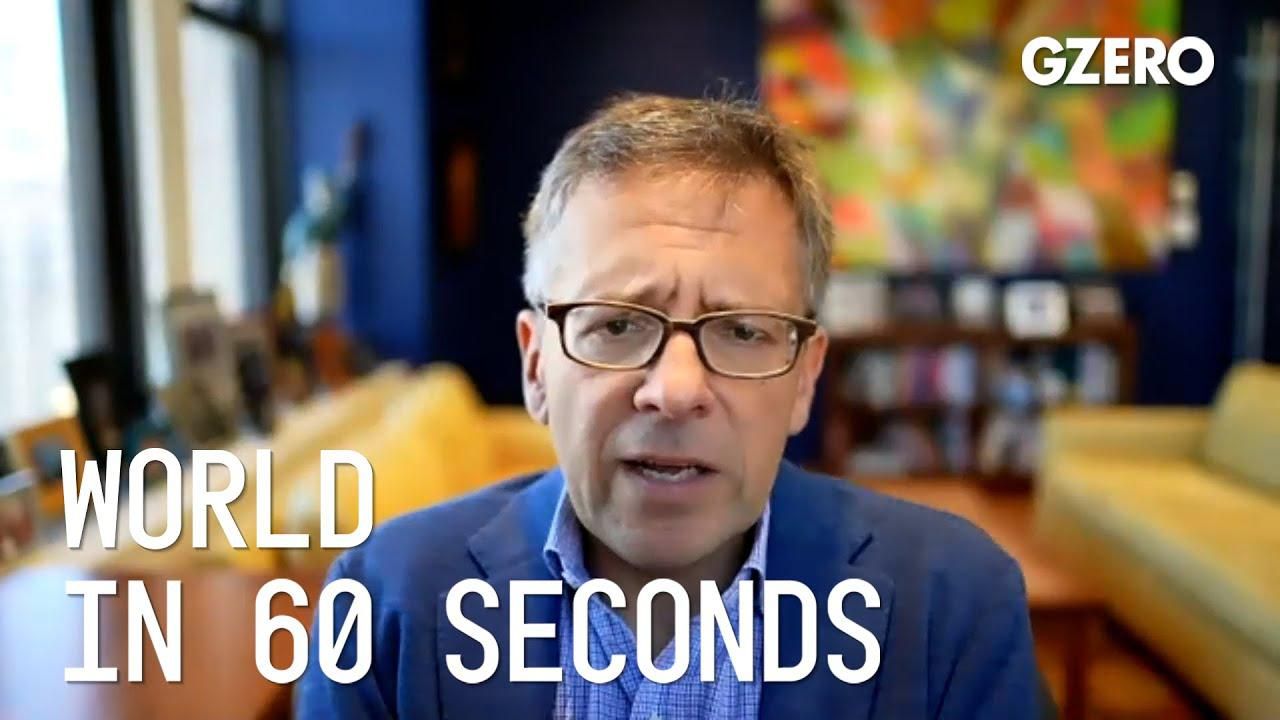Ian Bremmer shares his perspective on global politics this week:
How did the Biden-Putin summit go?
Well, we don't know, because it's not over yet, but I'll tell you, the opening, the opening looked fine. They shook hands. They're well prepped. Putin had to be on time because Biden was coming later. That made it a little bit easier. I think this is so overdone. This is not Gorbachev-Reagan. This is Russia in the context of a much more important strategic priority, China, for the United States. I expect little is going to come out, in terms of substance. The meeting will be cordial. There will be some desire to work together on things like arms control. The big question will be, what exactly is said, and if anything is committed to on cyberattacks, how the US is going to respond because so far Biden's looked pretty weak on that issue.
With Israel resuming airstrikes, is the ceasefire with Hamas over?
No. There was a series of attacks back and forth, incendiary balloons sent by Hamas from Gaza, landing in fields, didn't kill anybody. Israel responding immediately with airstrikes on Hamas training bases, didn't kill anybody. That's an end to that. It is, obviously, a very tenuous ceasefire, and it could blow up. Another point to raise is that this administration, run by new Premiere Naftali Bennett, is every bit as hard-line on dealing with the Palestinians, a general policy that gets large majorities of the Israelis to support it, as Netanyahu was. The problem, if there is an explosion in the ceasefire, is that the Arab party that is a part of the coalition could pull out and force yet another election. So, there is some consequence here, but I don't actually think that we've yet blown it up.
How is North Korea managing its food crisis?
Looks like its worst since the 1990s. The answer is, not really well. This has been both a flooding issue and horrible agricultural mismanagement. Plus, they've also had supply-chain problems and they're being hit with a horrible COVID explosion. And they don't really trust vaccines that are coming from other countries, not even China. And so, as a consequence, there could be more instability in North Korea than any of us assess right now. We don't get great information out of that country. It's not like Eurasia Group has stringers on the ground as we do everywhere else. So it's a hard one. I do think that there is now as a consequence of this, more of an opening for the Biden administration, if they want it. They are clearly thinking about reaching out to the North Koreans, not with a summit, but the possibility of starting some framework for arms control negotiations. If that's happening, it is out of a recognition that North Korea is a nuclear power and denuclearization is not going to happen. This is a space worth watching. I would focus on it over the next coming weeks because it's being discussed actively in the White House right now.
- The small aims of the big Putin-Biden summit - GZERO Media ›
- Biden goes to Europe, but is America really “back”? - GZERO Media ›
- Biden meets Putin: Much to discuss, little chance of progress ... ›
- Biden-Putin summit: US wants predictability; G7's strong COVID ... ›
- Joe Biden is top Russia skeptic in Oval Office since Cold War - GZERO Media ›
- Joe Biden, Russia skeptic - GZERO Media ›
- Why Joe Biden, Russia skeptic, wants to work with Russia - GZERO Media ›
More For You
Chris, an Army veteran, started his Walmart journey over 25 years ago as an hourly associate. Today, he manages a Distribution Center and serves as a mentor, helping others navigate their own paths to success. At Walmart, associates have the opportunity to take advantage of the pathways, perks, and pay that come with the job — with or without a college degree. In fact, more than 75% of Walmart management started as hourly associates. Learn more about how over 130,000 associates were promoted into roles of greater responsibility and higher pay in FY25.
Most Popular
A ceasefire in Ukraine could be a strategic trap, leaving Kyiv vulnerable, former NATO ambassador Ivo Daalder warns on GZERO World.
In this Quick Take, Ian Bremmer warns that US military strikes on Iran are “looking increasingly imminent” as diplomacy appears to stall.
